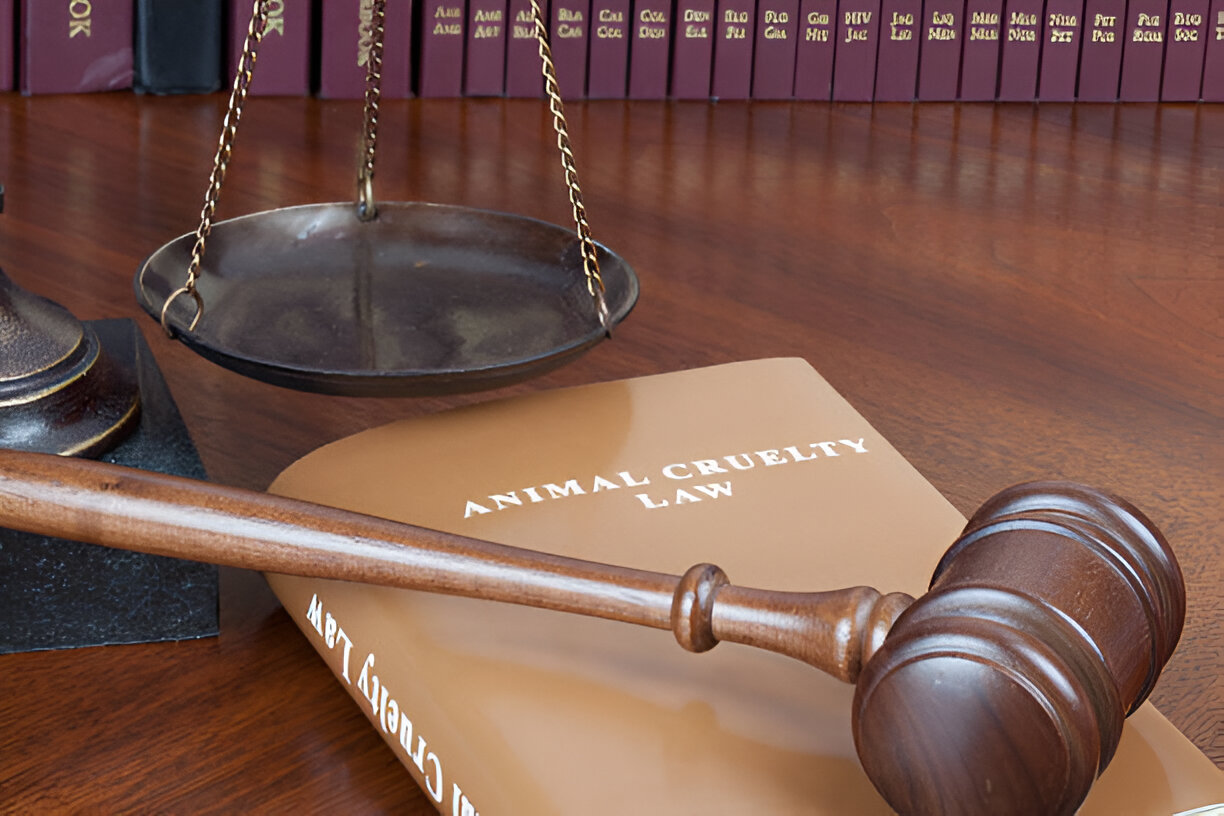Animal cruelty is taken seriously in Canadian law, with offences covered primarily under Part XI of the Criminal Code, as well as under provincial laws such as Saskatchewan’s Animal Protection Act, 2018. These laws recognize that animals are sentient beings and protect them from unnecessary pain, suffering, or neglect.
The main Criminal Code provisions dealing with animal cruelty are found in sections 445.1 to 447.1. In particular:
- Section 445.1(1)(a): It is an offence to wilfully cause, or permit to be caused, unnecessary pain, suffering, or injury to an animal or bird.
- Section 445.1(1)(b): Prohibits failing to provide suitable and adequate food, water, shelter, and care for an animal in one’s care.
- Section 445.01(1): Prohibits killing, poisoning, maiming, injuring, or wounding a law enforcement animal, service animal, or military animal.
- Section 445: Covers wilfully killing or injuring animals that are kept for a lawful purpose.
The definition covers both acts of commission (actively hurting or killing an animal) and acts of omission (failing to provide necessary care).
Types of Conduct Covered
There are important differences between causing harm, killing, and neglect:
- Hurting an animal – physical abuse, beating, burning, or otherwise inflicting injury.
- Killing an animal – includes intentional killing without lawful excuse, such as hunting outside legal limits or killing a pet.
- Neglecting an animal – failing to provide food, shelter, water, and veterinary care.
Sentencing and Examples
Animal cruelty offences can be prosecuted by indictment or summarily, making them hybrid offences. The sentencing ranges vary depending on the mode of prosecution:
- Indictment: Up to 5 years imprisonment.
- Summary conviction: Up to 2 years less a day and/or a fine of up to $10,000.
Courts have imposed significant jail terms in severe cases:
- In R. v. Munroe, 2006 CanLII 20220 (ON SC), the accused received a custodial sentence for killing his dog with a hammer.
- In R. v. Pauliuk, 2019 SKPC 36, the offender was jailed for multiple counts of animal neglect involving dozens of dogs in unsanitary and unsafe conditions.
Judges also often impose prohibition orders under s. 447.1, banning offenders from owning or caring for animals for a set period or for life.
Criminal Code vs. Animal Protection Act
Cases can proceed under the Criminal Code of Canada or under Saskatchewan’s Animal Protection Act, 2018:
- Criminal Code charges are criminal offences and carry the possibility of jail, a criminal record, and nationwide enforcement.
- Animal Protection Act violations are provincial offences, usually prosecuted when the matter involves neglect rather than overt violence. Penalties often include fines, prohibition orders, and seizure of animals, but do not result in a criminal record.
Animal welfare officers and police may lay charges under either statute, depending on the severity of the conduct and the evidence available.
Animal cruelty cases can have life-changing consequences. A conviction can lead to imprisonment, a permanent ban on owning animals, and a lasting criminal record. These offences are treated seriously by the courts, and even first-time offenders can face jail in severe cases.
If you are facing charges under the Criminal Code or the Animal Protection Act, it is essential to seek experienced legal advice immediately. Early intervention can make a significant difference in the outcome of your case.
Contact Linh Pham at (306) 502-5987 for a free consultation.
Legal References:
- Criminal Code, RSC 1985, c C-46, ss. 445–447.1
- Animal Protection Act, 2018, SS 2018, c A-21.2
- v. Munroe, 2006 CanLII 20220 (ON SC)
- v. Pauliuk, 2019 SKPC 36 – View on CanLII

